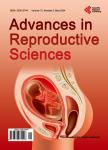Direct Interventional Discussion Effectively Improves Awareness and Knowledge about Modern Contraceptive Methods
Direct Interventional Discussion Effectively Improves Awareness and Knowledge about Modern Contraceptive Methods作者机构:Departments of Obstetrics & Gynecology Faculty of Medicine Menoufia Universities Al Minufya Egypt Departments of Obstetrics & Gynecology Faculty of Medicine Benha Universities Benha Egypt
出 版 物:《Advances in Reproductive Sciences》 (生殖科学(英文))
年 卷 期:2020年第8卷第1期
页 面:1-13页
学科分类:12[管理学] 1204[管理学-公共管理] 120402[管理学-社会医学与卫生事业管理(可授管理学、医学学位)] 1004[医学-公共卫生与预防医学(可授医学、理学学位)] 10[医学]
主 题:Knowledge Contraception Modern Methods Primiparas Intrauterine Device
摘 要:Objectives: Determination of influence of direct interview of postpartum women about their awareness and knowledge regarding contraception and modern contraceptive methods. Patients & Methods: 1437 women joined the intervention and underwent evaluation of their knowledge about the concept and methods of contraception. Then, an interview was conducted with each woman to clarify advantages and appropriateness of various contraceptives and the proper time for initiation of contraception. All women were asked to discuss these data with their families and return to give their decision. Study outcomes included evaluation of women’s knowledge about contraception and its modalities, frequency of non-users who accepted to use contraception and is considered as success of the intervention and frequency of requesting each modality of contraception. Results: TV programs and discussion with local health provider, relatives or friends are the main sources of knowledge of primiparas. 182 primiparas had good knowledge and chose the appropriate method of contraception during the 1st session of discussion, and 81 primiparas required 2 sessions to choose the method appropriate for them, while 21 primiparas insisted not to use contraception for an acceptance rate of 92.6% among primipara. Among multiparas, 222 multiparas were non-users, but after discussion 133 couples accepted to use contraception. Thus, 396 non-users had accepted to use contraception for an intervention success rate of 78.3%. Collectively 692 women (52.1%) received IUD and 635 women (47.9%) received hormonal contraception;432 orally (32.6%) and 203 parenterally (15.3%). Conclusion: Ignorance, low financial status and cultural beliefs deleteriously affect knowledge about contraception options and its methods, so direct interview is mandatory. The applied intervention succeeded to replenish women’s knowledge about benefits of using contraception. Primiparas had knowledge about contraception but their knowledge about m



